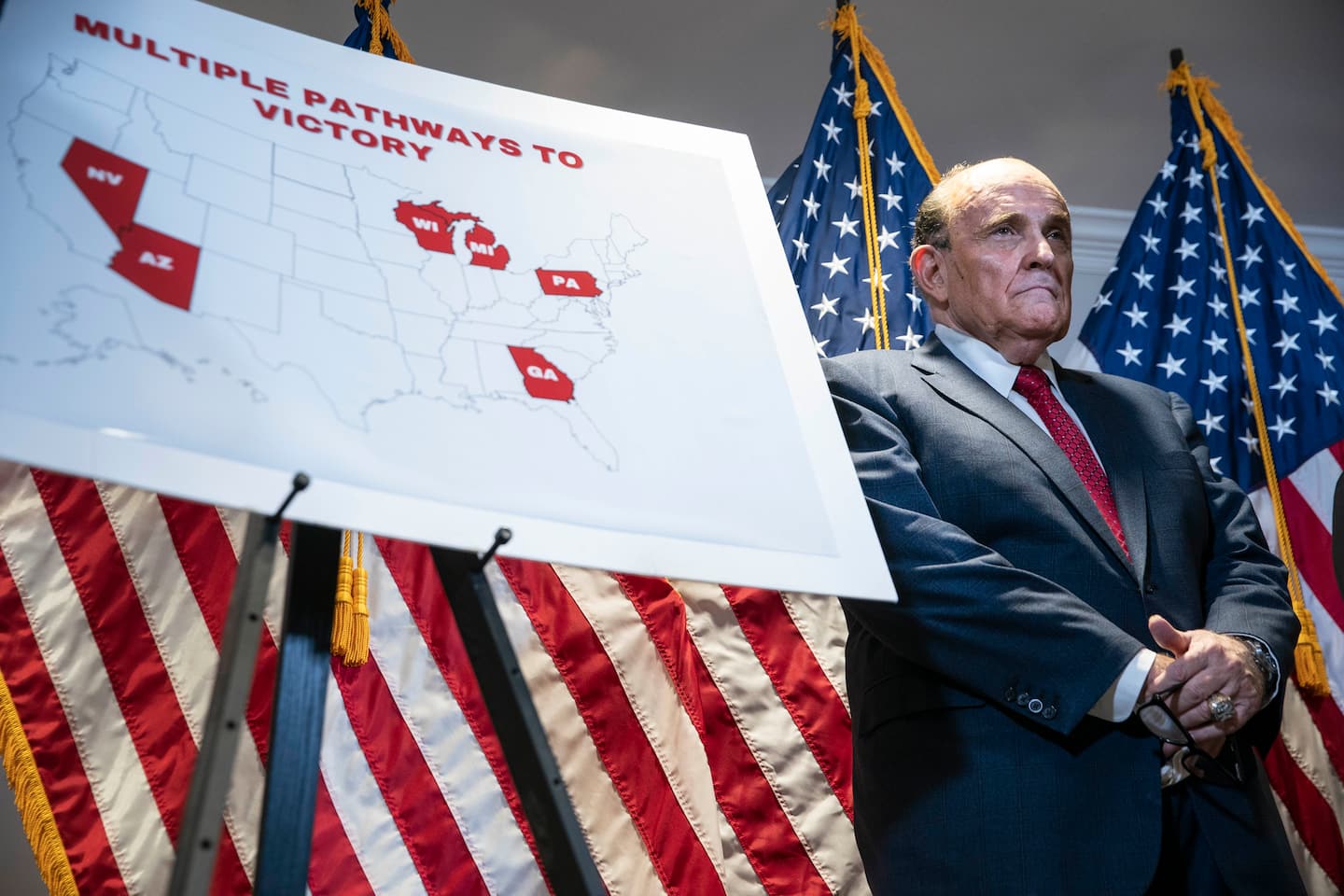The Trump team throws in the towel on proving voter fraud

But the GOP’s new focus on this hail-Mary case is also notable for one key reason: It essentially throws in the towel on proving fraud.
Ever since the election, President Trump’s legal team and allied lawyers have said they had myriad evidence of actual, provable fraud. This has been rejected in almost every case by the courts, but the Trump team has asserted that its evidence — based largely on affidavits from people involved in the vote-tabulating process — is sound and demonstrates malfeasance.
The Texas lawsuit, though, effectively acknowledges that that effort has failed. Rather than claiming evidence of proven fraud, it instead claims that the fraud is actually “undetectable,” because election officials made it so by doing illegal things. And that’s why it wants the results overturned.
“Despite the chaos of election night and the days which followed, the media has consistently proclaimed that no widespread voter fraud has been proven,” the lawsuit says (and that proclamation is accurate). “But this observation misses the point. The constitutional issue is not whether voters committed fraud but whether state officials violated the law by systematically loosening the measures for ballot integrity so that fraud becomes undetectable.”
That might be the point of this particular lawsuit, but it has decidedly not been the point of the pro-Trump legal effort to date.
Trump’s lawyer Rudolph W. Giuliani has said for weeks that he has evidence of fraud and that it had already arrived or was forthcoming. He claimed that a video in Georgia “puts the lie to the fact there’s no evidence” of fraud. (The claim had already been debunked.)
Former Trump lawyer Sidney Powell has said: “We’ve got a number of smoking guns. … We have a lot of extremely solid evidence. It’s beyond impressive, and absolutely terrifying.”
The Texas lawsuit, though, shifts the focus entirely to another matter: the actions of elections officials. It says their actions, including the Republicans who run Georgia’s elections, actually obscured evidence of fraud.
“The unlawful actions of election officials effectively destroy the evidence by which the fraud may be detected,” it says.
The lawsuit does not claim evidence of fraud in the vote-tabulation process but rather says, “The public record demonstrates a ballot-counting process replete with chaos, confusion, and partisan bias.”
It also comes close to acknowledging that fraud has not conclusively been proved.
“Whatever doubt there is about fraud by voters or political operatives,” it says, “there is no doubt that the officials of the Defendant States changed the rules of the contest in an unauthorized manner.”
It’s certainly a novel legal strategy, but it’s also one that reflects the last-ditch nature of the effort. The Trump team has spent weeks asserting that it could prove fraud or has proved fraud. It hasn’t — and in many cases lawyers like Giuliani have been forced to admit in court that they aren’t alleging actual fraud in specific cases — so now the argument is that this is beside the point. The real point, it seems, is that fraud could have occurred but that we might never see it because elections officials made it that way.
“It is not necessary for the Plaintiff in Intervention to prove that fraud occurred, however,” the suit states, “it is only necessary to demonstrate that the elections in the defendant States materially deviated from the ‘manner’ of choosing electors established by their respective state Legislatures.”
In other words, it’s not saying that Trump definitely won; it’s just saying that supposedly illegal actions make it impossible to determine conclusively that Joe Biden did. And because of this, it apparently argues that Trump should remain president.
It’s not the first time the Trump team has watered down its claims of fraud when actually faced with vouching for them in legal proceedings, as noted above. But it’s certainly telling that it’s now proactively dispatching with that question and shifting its legal argument in a completely different direction. If this was truly what happened, after all, why spend weeks talking about evidence of fraud rather than that? The reason: It wanted to prove fraud, but it couldn’t. So now it’s doing this other thing.
At the least, Trump’s donors have been sold a bill of goods in those many fundraising emails promising to uncover fraud. And the fact that Trump’s campaign has now signed on to a lawsuit acknowledging the lack of evidence is a clear commentary on the hand it’s playing.
*** This article has been archived for your research. The original version from The Washington Post can be found here ***


